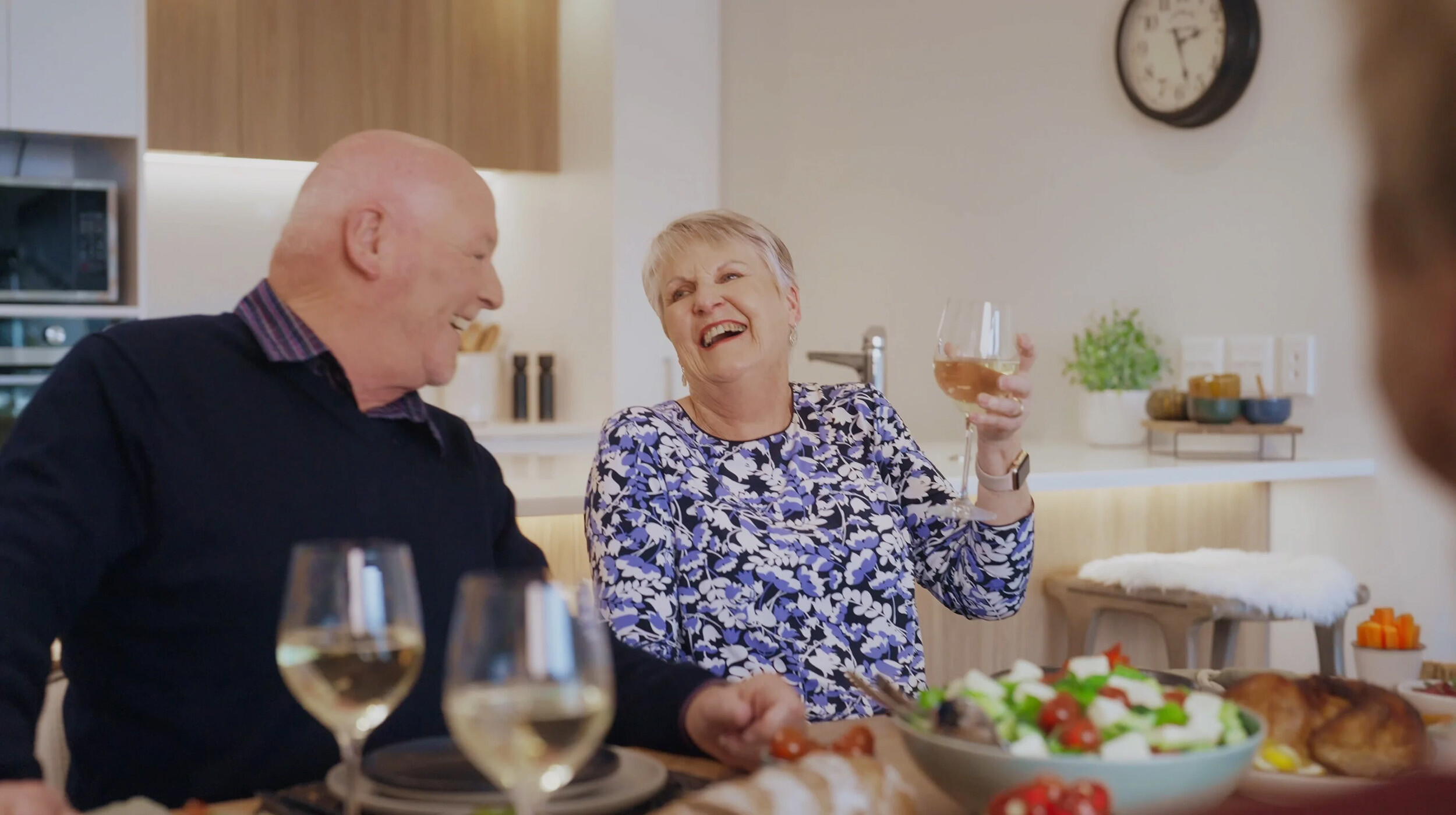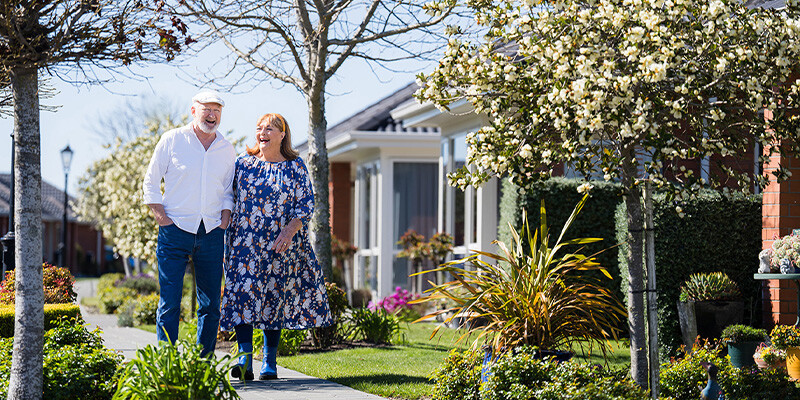Thinking long term about property in retirement
Thinking long term about property in retirement

As we get older, we inevitably spend a bit of time looking at options for living in a comfortable retirement spot. We all want to find that perfect place – whether it be a retirement village, an over 60s units or staying in one’s own home.
However, getting to that perfect possie takes a bit of planning and also a change of mindset. There have been a lot of headlines about the housing market having come off the boil, but one perspective on that issue is that there is almost never a ‘perfect’ time to sell your family home to downsize or move into a village community.
It is important to discuss the issues of retirement living well ahead of any move to a new home.
Changes in circumstances happen to all of us, and so everyone needs to be a bit forward-looking in terms of living choices.
While a good number of people inevitably become concerned about drops in property values, the current situation is not necessarily anything to worry about. By definition, when we’re in a property cycle, there are ups and downs.
Thus, retirees need to look at the wider trend in property. While house prices might have fallen from a peak, those prices are still well ahead of where they were five or 10 years ago. Not many people have the luck of being able to sell right at the peak of a market, so people shouldn’t feel bad about that. Also, while the value of a home may have fallen, other values including other living options will have come back as well or at least not have upward pressure on them.
Taking a longer-term perspective means an older couple can usually say they’ve done really well, out of home ownership.
There comes a time when a couple or single person should take stock of the future and come to a decision as to where they want to live the last part of their life, rather than have an option forced on them. One question is: do you want to stay in your own home and come and have someone look after you, or would you rather be in a retirement village where there are people around you that can help you as needs be. But it’s very much a lifestyle choice and there’s no right or wrong answer.
There are ways to make the family home just a wee bit more attractive to buyers, as witnessed on television shows like Selling Houses Australia. A really good real estate agent will give guidance on such things as how much to spend on preparing a house for sale. You shouldn’t go overboard in terms of putting in new kitchens and bathrooms but it certainly does help if the property is presented well.
An investment can be made in updating the décor or staging the property with more modern and neutral furniture. Painting untidy areas, decluttering and making sure the garden is presentable are other relatively non-expensive and straight forward decisions.
So, if you do downsize or move into a retirement village, there should be some money left in the bank account. One question, that raises, is how quickly should that money be spent.
My view is that those who have worked hard all their lives deserve to be able to spend their savings in retirement, rather than pass it all on to their children. Those children will, in many cases, benefit from a final settlement on a family property or retirement townhouse or apartment. These days, also, the children should be able to look after themselves.
Personal circumstances and preferences might help determine how a couple or single retiree spends any extra money left over following a move to downsize or move into a village community.
Some might see their travel options open up, while others may feel they have been there and done that, or that they don’t even like travelling.
That being said, those looking forward to retirement should certainly save towards having extra money on hand. Superannuation in New Zealand can to an extend cover day-to-day living costs but no more.
My broad rule of thumb is for when people first retire, in their mid-60s, that they should have up to half the value of their home available as a liquid (able to be freed up easily) investment portfolio. That is a good number to aim for, if you want a really good retirement, to do lots of travel and other things.
The reality is that during the first ten years of your retirement is the time of your spending will be highest, and as get older you tend to spend less though healthcare expenses can increase.
Certainly, on retirement, you don’t want to be asset rich and cash poor because even if you have a lovely home to live in, you won’t be able to go anywhere. Also, if you do choose to stay in your own home, you should make some maintenance provision. You don’t really want to get lumbered with a lot of maintenance as you get older.
In terms of the leftover amount, following the sale of the family home, it can be used strategically over a good amount of time. Thinking of how much extra travel and the lump sum projects you would like to do, on top of normal weekly living costs, and budgeting for that can help you estimate how much extra cash or liquid investments you need. Such items might include a new car, or spa pool.
Travel is also usually on people’s minds and I’m thinking that I will try and get a lot of travel done in the next five years. After that I can say to myself ‘I’ve been there, done that’ and if I lose my good health it doesn’t matter as much.
Liz Koh is a money expert specialising in retirement planning. The advice given here is general and does not constitute specific advice to any person. She can be contacted at enrichretirement.com
by Alan Wood | Dec 9, 2022
Subscribe to our blog newsletter
You May Also Like
These Related Stories

Tips for moving to a pet friendly retirement village

Find a Retirement Village in New Zealand


